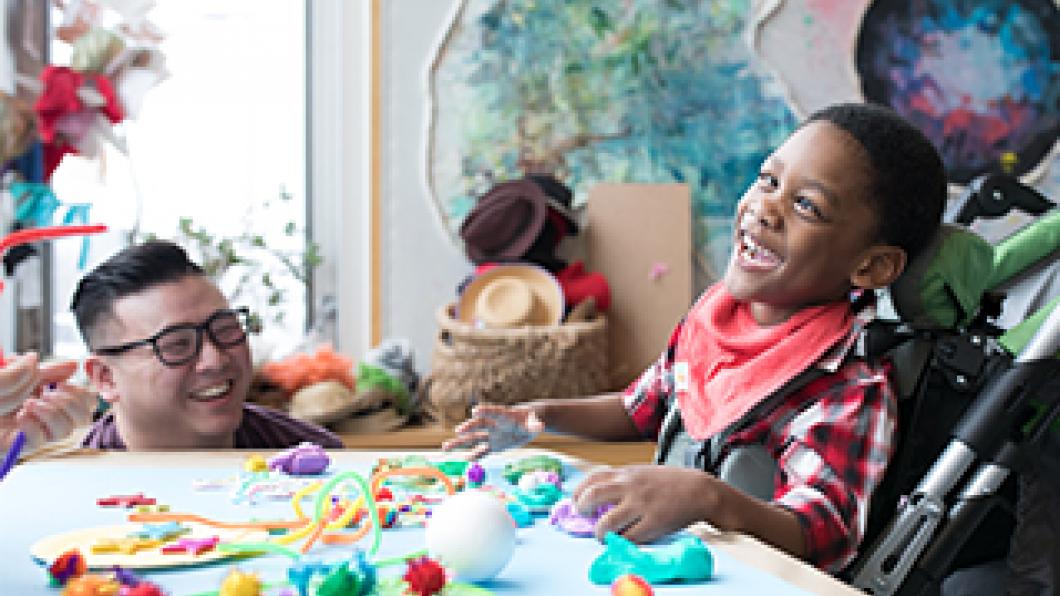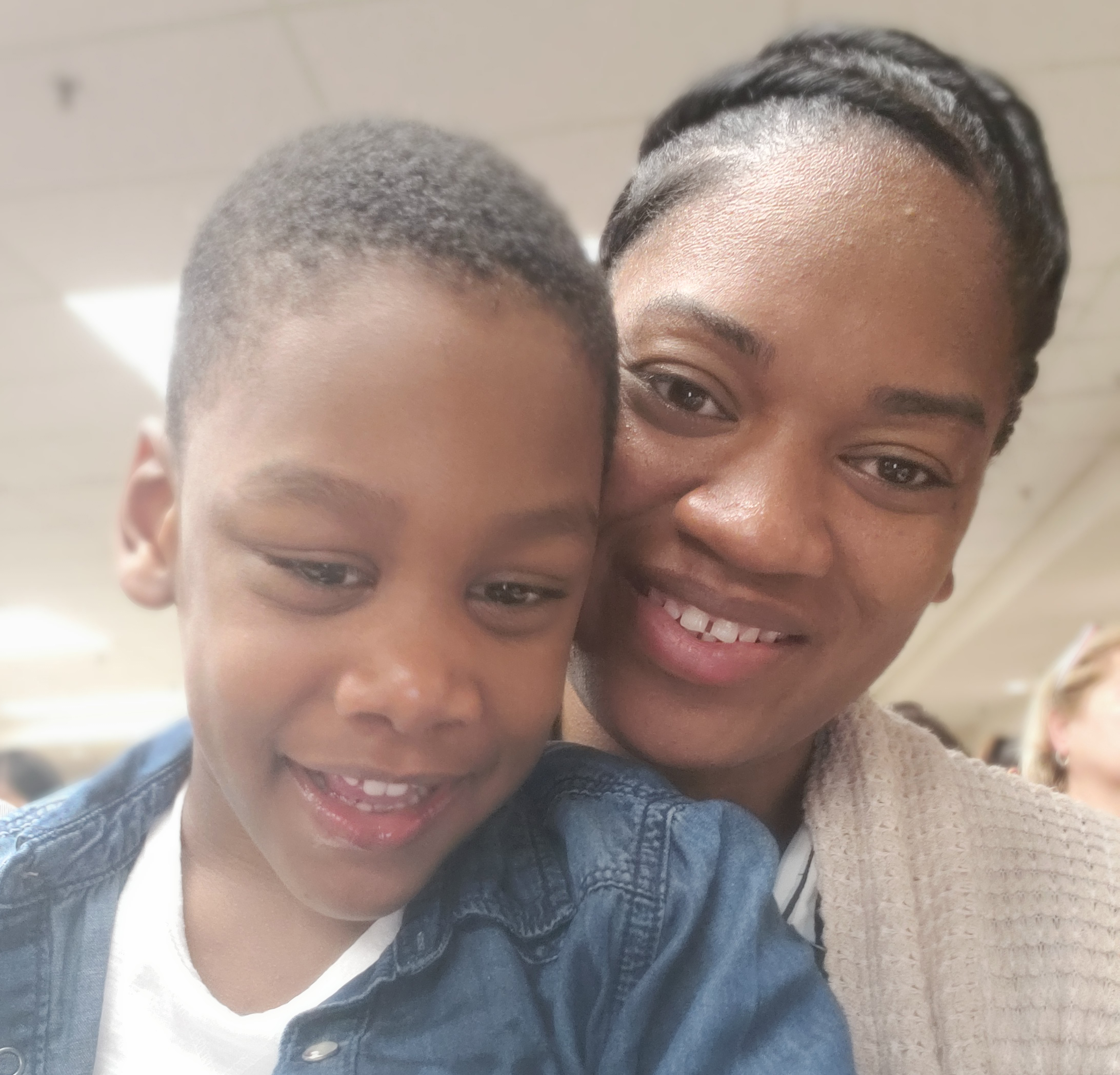
From pointing to saying please – Carson’s story
When Carson arrived at Holland Bloorview, you could say the most important part of his body was his index finger.
That’s what he used more than anything to communicate. When he wanted a toy or food, he looked at it and pointed. It was difficult for his mom, Cathyanne, not to be able to hear her son’s voice. She so wanted to talk to him.
Carson has cerebral palsy and he has been coming to Holland Bloorview since he was born. It was here that he was able to say his first words and take his first steps. And that was just the beginning.
Over the last five years, Cathyanne has witnessed a wonderful transformation. Through services like speech therapy, physiotherapy, occupational therapy, music therapy, and other programs, she’s watched her son blossom, both in his abilities and his personality.
Initially unable to walk, today Carson motors around the hospital and home with the aid of a walker and is able to take a few steps with his mom’s help.
And that index finger still gets a workout, as Carson loves technology so he’s often playing on his iPhone and tablet for shows and games. He’s becoming somewhat of a wizard with technology.
But the biggest change in Carson is not what Cathyanne sees, but what she hears. Once silent, Carson now has a vocabulary of 50 words and is starting to speak in short sentences. And to Cathyanne’s delight, he’s begun to use the word “please” when he asks for something.
The conversations are short, but they’re getting longer and Cathyanne can’t wait to hear what Carson has to say in the future as she watches her son get a little more outgoing and a little less afraid of meeting new people.
“He’s just the best, most amazing kid,” said Cathyanne. “Without Holland Bloorview, I don’t know where we would be.”
Carson becomes musically inclined
Carson loves all kinds of music. If you want to see him dance, all you have to do is ask. He’s more than happy to show you his moves. He’s able to explore his love of music through Holland Bloorview’s music therapy program.
 Music has been an important part of Holland Bloorview’s care for 70 years. Most music and art therapy programs at Holland Bloorview are donor-funded and offer a myriad of ways for kids like Carson to be social and expressive.
Music has been an important part of Holland Bloorview’s care for 70 years. Most music and art therapy programs at Holland Bloorview are donor-funded and offer a myriad of ways for kids like Carson to be social and expressive.
On any given day you’ll find adapted music education such as individual lessons on piano, electronic keyboard, percussion, violin, voice, guitar, and the ukulele. With music therapy there are individual or group sessions where traditional instruments and our Virtual Music Instrument are used to encourage the development of psychosocial, motor, communication, and sensory skills.
“During music therapy I see kids like Carson interacting, co-operating, initiating, making decisions, growing in self-confidence…they’re enjoying themselves so much and music is such a natural part of being a child, they don’t realize it’s helping their recovery,” said music therapist Eunice Kang.
Thanks to you, Carson is living hands-on
Carson’s finger can dance across the screen of his phone and tablet thanks to occupational therapists.
Occupational therapists at Holland Bloorview help kids with disabilities get back to daily living activities by helping them become as self-sufficient as possible.
That could mean learning to use new adaptive equipment. Or it could be something you might not even think about like learning how to brush your teeth, tie your shoes, or feed yourself again. Occupational therapists also work closely with schools, camps and other groups to make sure kids have the best experience possible, no matter the activity.
Carson experienced some spasticity in his hands, causing them to close. Extending his fingers became difficult. But therapists worked with Carson to give his hands more strength, dexterity and movement.
As a result, Carson can now pick up food off the table and feed himself, and instead of pointing at toys, he’s reaching out and confidently grabbing them himself.
